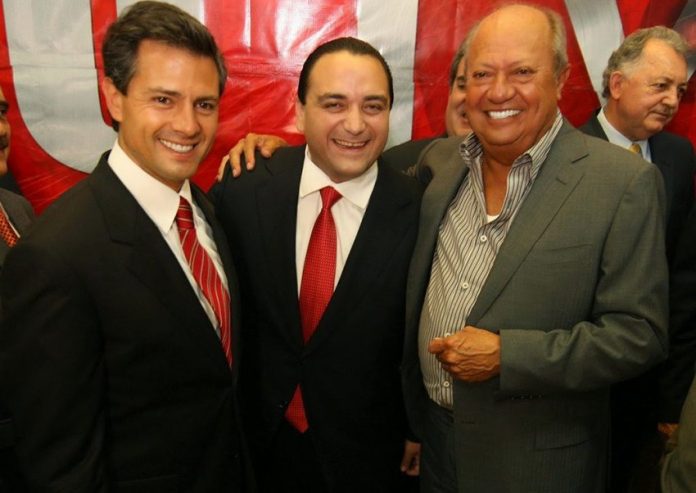Members of the Mexican Petroleum Workers’ Union made history this week when they cast secret ballots to elect union leaders. But critics labeled the process a sham.
On Wednesday, members of the Pemex workers’ union voted to fill leadership positions at each of the union’s 36 locals but dissident union members say the election was rigged to ensure that the winners were supporters of longtime union boss Carlos Romero Deschamps.
Juan Carlos Chávez González, president of the Democratic Alliance of Oil Workers, said the idea was to elect 36 leaders loyal to Romero, who would then ratify him as leader for another six years.
“Everything is a maneuver to leave Romero Deschamps as leader, despite the opposition of the president-elect, Andrés Manuel López Obrador, who demands democratic elections,” Chávez said.
López Obrador has promised to modify the laws on union elections so that workers can elect their leaders freely and democratically through a secret vote.
At the elections this week Pemex workers voted in the privacy of booths installed at their workplaces. But for Chávez, it didn’t mean much: he said the vote was little more than a simulation.
He accused the national leadership of threatening union workers over their vote, and charged that those responsible for counting the votes had close ties to Romero. For that reason, his union did not participate in the elections.
“We’re not going to lend ourselves to a cheap ploy,” he said. “They simulate democratic elections, but it’s like going to play a soccer match on their field, with their ball, with their referee and with their rules, just to be destroyed.”
A rival to Romero said much the same. María de Lourdes Díaz Cruz, head of an organization that advocates for reform at the Pemex union, charged that there were irregularities in the election process, which she said was marked by lies and impediments to the registration of dissident groups.
“There was no union democracy, it’s a farce.”
Díaz announced in August she wanted to challenge Romero for the union leadership, saying it was time to end “repression, intimidation and violence against workers on the part of vandals and corrupt leaders” when elections came around.
She called for Romero’s removal and an investigation into abuses and illicit enrichment.
In 2013, Forbes magazine named Romero one of the 10 most corrupt politicians in Mexico.
His critics have pointed out that it is unlikely that his union salary — less than US $2,000 per month — is able to finance his family’s lifestyle.
In a speech on Wednesday in Tamaulipas, López Obrador spoke against union corruption, taking a direct shot at Romero.
“None of this ‘I want to be a union leader because if I’m an oil leader I’m going to bathe in money, because I’m going to sell positions, because I’m going to award contracts for money’ — that’s going to go down the drain, that’s ending completely,” he said.
The corruption goes beyond the oil workers’ union, he said. “. . . it’s not just Romero Deschamps.”
According to Chávez, the election represented an attempt by the Institutional Revolutionary Party establishment to solidify control in the union before the end of President Peña Nieto’s term next month.
“It is a crude strategy that is being carried out by Pemex, by the federal government,” Chávez said. “They intend to leave Romero Deschamps at the head of the oil union for six more years to serve as a counterweight to López Obrador.”
Source: Reforma (sp), Excelsior([sp), El Universal (sp), El Sol de Puebla (sp)
